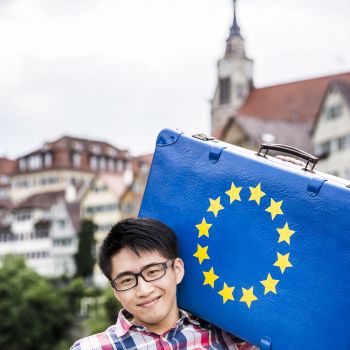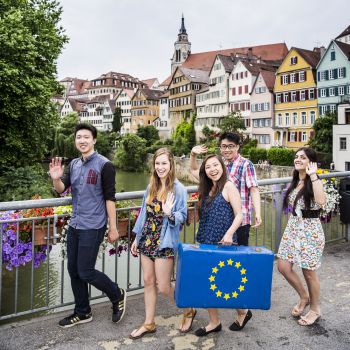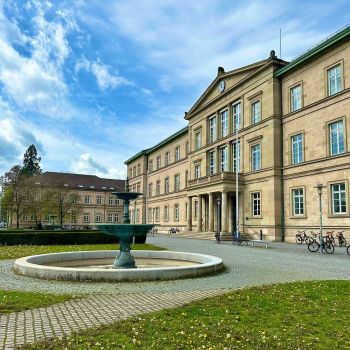30 August 2024
on course website
Representing the European Past: Memory and Place-Making in Cross-Cultural Communities
This program delves into the political processes entailed in remembering and forgetting, introduces students to the commemorative landscape of the EU and explores possible solutions to the challenges facing European collective memory or what could be called Europe's culture of remembrance. Sessions will deal with what makes us remember some things while other facets of our lives and historical events are supressed or hard to recollect. How does what we remember (and what we - choose to - forget) structure the reality that we live in - symbolically, physically, and politically? How is the past used (or abused) to serve the present needs of individuals and collectives in Europe today, where different concepts of identity oftentimes clash with the reality of cosmopolitan communities that are both ethnically and culturally diverse.
In addition to this academic program, the school includes German language courses on proficiency levels A1 (no German knowledge) and A1-A2 (beginners). Participation in the German language course is compulsory. The courses will be taught by qualified instructors of the Department of German as a Foreign Language and Intercultural Programs. Through an intercultural and communicative approach students will be actively involved in class to encourage language learning. The focus will be on speaking and listening to improve students' language competence in everyday situations.
For participants with a higher German language level (B1-C1), we will offer the possibility of independently carrying out project work (or similar) in German in consultation with the T-IES team.
The school also offers an intercultural workshop that prepares participants for the very diverse setting in which all classes take place, a buddy program which matches each participant with local students who offer support throughout the summer school (and before), and a rich and varied social program that offers many opportunities to experience arts, culture, and local student life in one of Germany’s most historical university towns.
Course leader
The courses are taught by University of Tübingen faculty and experts dedicated to the study of Europe.
Target group
The courses are designed for undergraduate students from all academic disciplines with a strong general interest in cultures, Europe and Germany in particular. A very good command of English and the willingness to actively participate during course activities are required.
Course aim
By familiarizing themselves with how the EU works today and the recent challenges it faces, at the end of the course students will have solid knowledge about the process, potential benefits and pitfalls of regional integration which they can not only apply to Europe alone, but to other world regions as well. They will be able to identify and understand the dynamics of transnational policy-making and how the coordination of political activities among nation states generally impacts the lives of citizens in many countries at the same time.
Credits info
8 EC
After successful completion of all courses and fulfillment of all course requirements 8 ECTS credits will be awarded for participation in the Summer School (subject courses: 6 ECTS credits; German language course and intercultural workshop: 2 ECTS credits).
The University of Tübingen applies the European Credit Transfer and Accumulation System (ECTS). The ECTS is a system for international recognition of academic achievements and transfer of study credits. Thus, study and examination performance achieved during a study abroad can be recognized by the home university.
At the University of Tübingen 1 ECTS equals a workload of 30 hours. The workload comprises regular presence and active participation in the courses, private and independent study, preparation of projects and examinations (e.g. written test, oral presentation, essay). The attendance at a course of 45 min will be counted as 1 contact hour (60 min).
Fee info
EUR 1950: The price includes
- All courses
- Course materials
- Study trips
- Accommodation in Tübingen
- Cultural and social activities
- A public transportation ticket for use within Tübingen
- Welcome and Farewell reception
EUR 1800: For students who are enrolled at a partner university of the University of Tübingen the program fee will be € 1,800.
on course website




